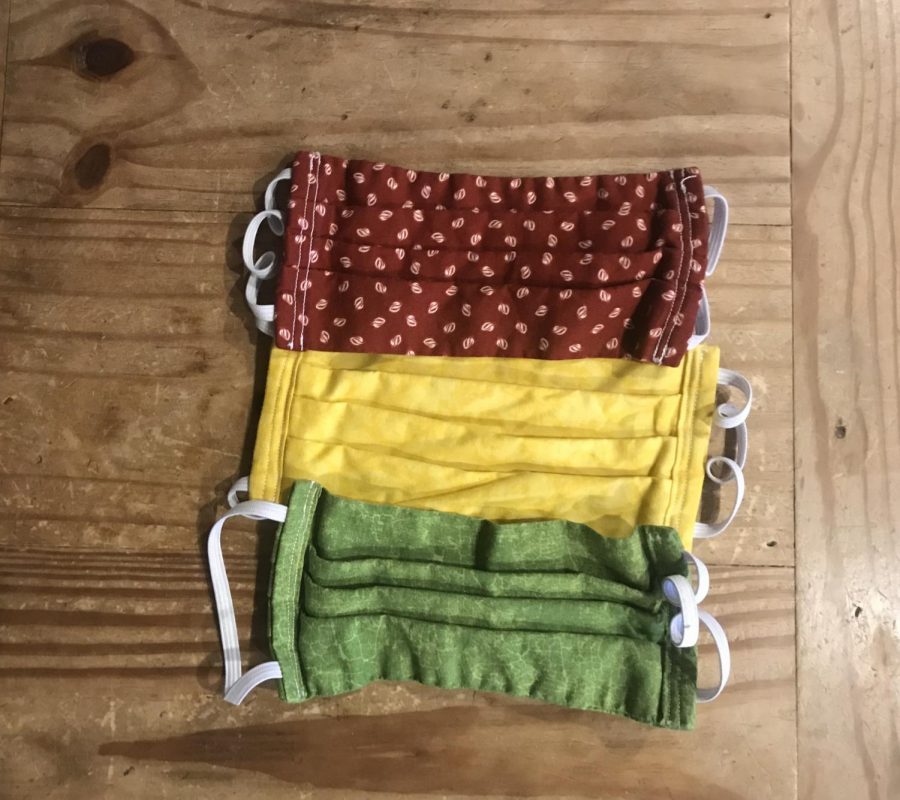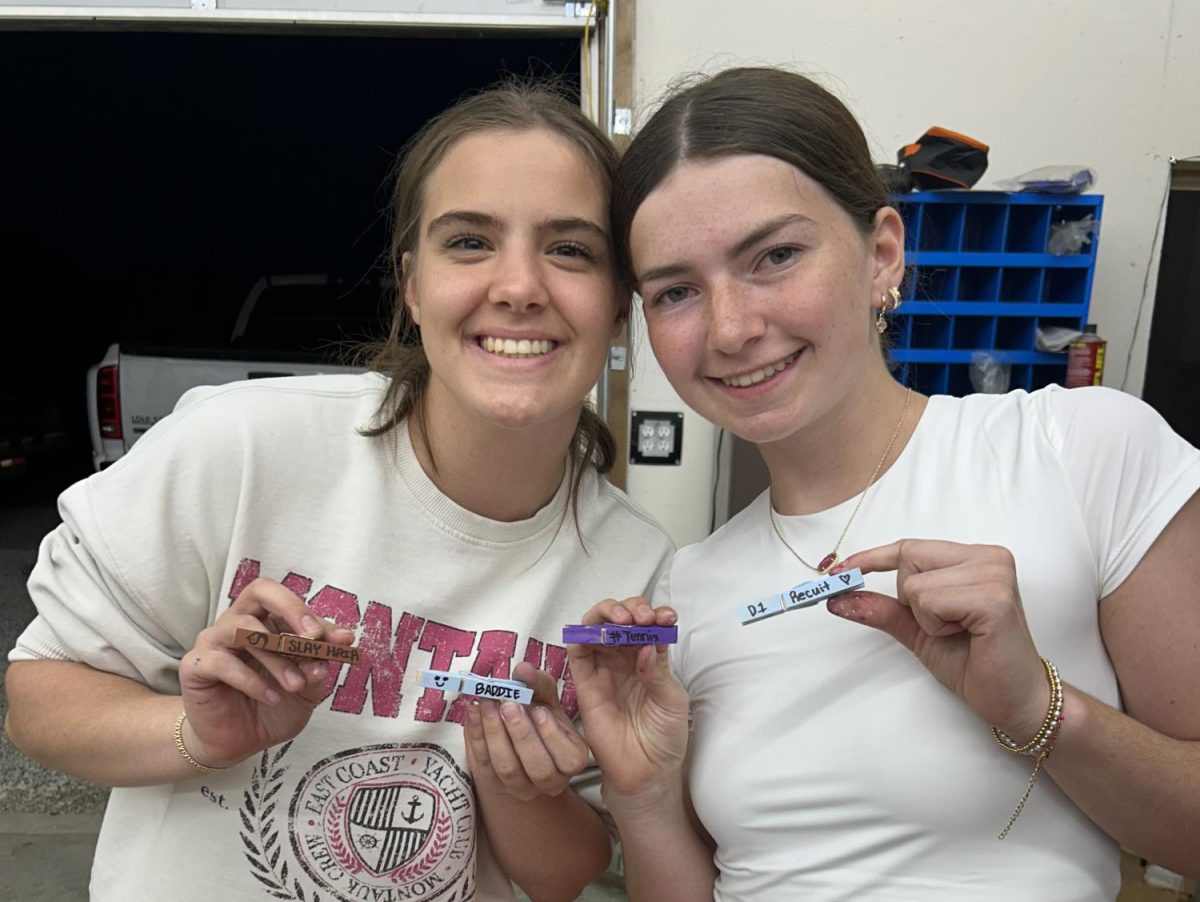Cloth Face Masks Helping Stop the Spread
The CDC advises using cloth face coverings in public places.
Cloth face masks have grown in popularity around town, as well as the country. Many community members have donated their time and materials to create these helpful devices.
April 16, 2020
With COVID-19 proving itself to be contagious, it’s important to take a number of precautions in order to stop the spread. The CDC has recommended a number of safety measures to take, like social distancing, washing your hands, and sanitizing surfaces. One of the more recent recommendations is to wear cloth masks.
The CDC specifically recommended wearing cloth masks instead of surgical masks or N-95 masks as they’re materials “that must continue to be reserved for healthcare workers and other medical first responders.” Wearing cloth face coverings can be helpful in community settings, such as the grocery store, or public places that social distancing can be hard to maintain.
An efficient method in sterilization for these masks would be using the washing machine. They should be routinely washed in accordance with use. It’s important to note that individuals should avoid touching their eyes, nose, and mouth after taking off the mask in order to prevent any germs on the mask itself.
According to the CDC, cloth masks can be made from household or common materials at a low cost. Community member Joyce Wieser learned how to make cloth masks and made them for her close friends and family. It was a trial and error process, as she tried some different options from watching videos online. “Some worked and some didn’t,” Wieser said. The process for Wieser includes sewing a piece of “high-quality” cotton fabric, fusible interfacing as a protective lining, and a flannel on the inside “because it’s softer on the skin.”
Wieser started making masks for “health” and “protection” to keep her family safe. “I just don’t want this stuff in my home and the only way to stop is to protect yourself,” Wieser said.
Using cloth masks or coverings is an effective way to help stop the spread of COVID-19 along with social distancing, and washing your hands. Step-by-step tutorials on how to make cloth face masks can be found on the CDC website. They’ve also created a video series on their YouTube channel for “easy do-it-yourself” cloth face coverings.










